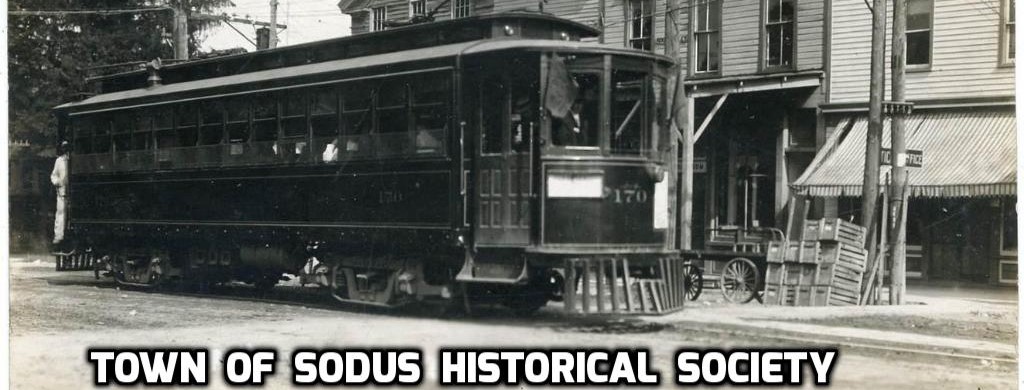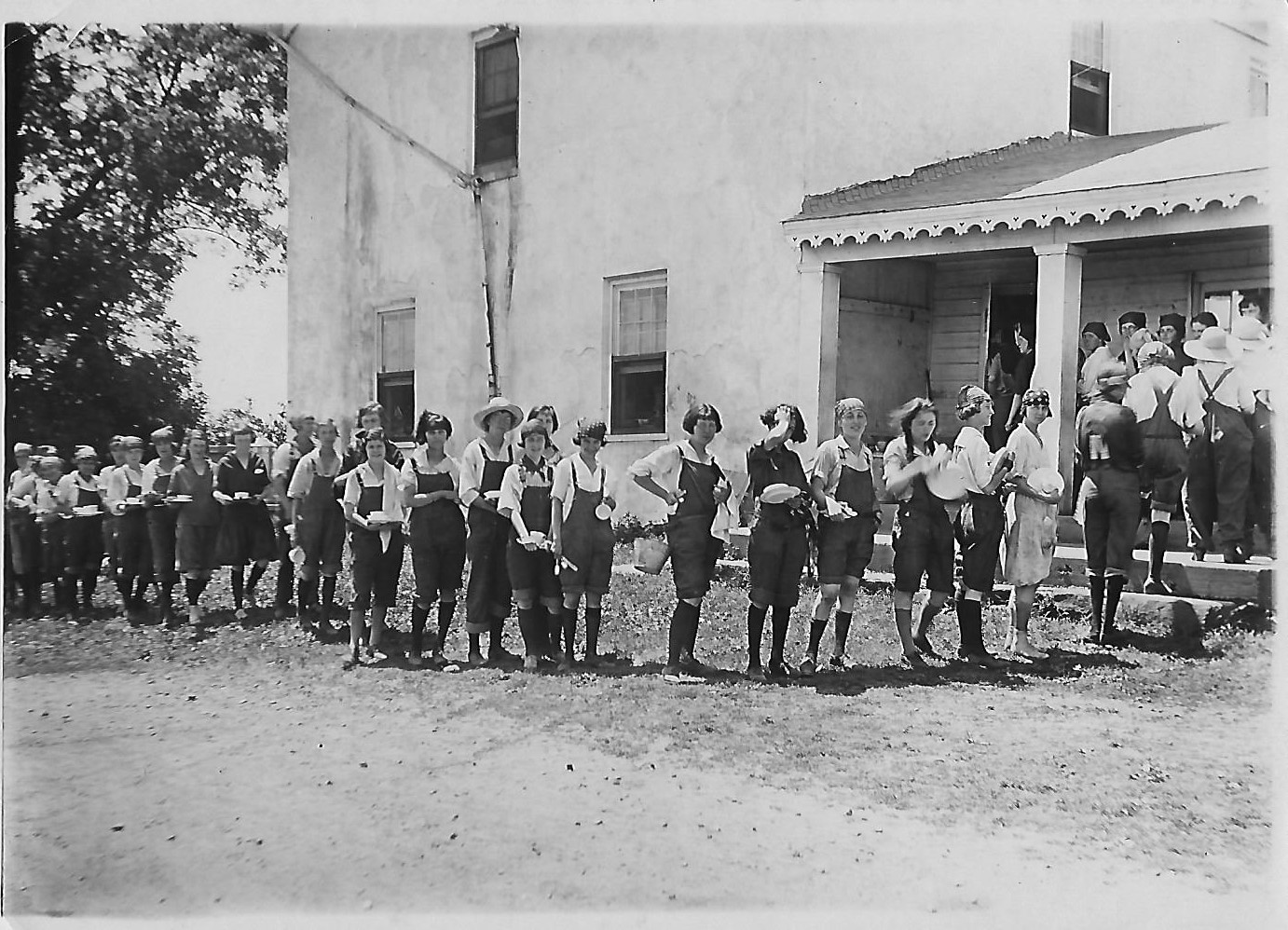
The photo is labelled “In line for eats at the camp. Photo by Alvah H. Pulver, Sodus NY. Sodus Fruit Farm.” Photo courtesy of Dick Ransley.
A generation before Rosie the Riveter, there were strong patriotic women coming to the aid of their country during a World War. Locally, they were the Sodus Fruit Farm Farmerettes…..
1917 – 1929
From 1917 to 1919, the Woman’s Land Army of America brought more than 20,000 city and town women to rural America to take over farm work after men were called to war. These women would continue their services even after World War 1 ended and were used again during World War 2.
Most of these women had never before worked on a farm, but they were soon plowing fields, driving tractors, planting and harvesting. The Land Army’s “farmerettes” were paid wages equal to male farm laborers and were protected by an eight-hour workday. For many, the farmerettes were shocking at first–wearing pants!–but farmers began to rely upon the women workers. It was a time of change in society. As is always the case, some would find change disconcerting, even threatening. The July 26, 1918 Sodus Record reported it this way:
“Sodus has a bunch of farmerettes camped out near there to help gather
the sour cherry crop, automobile manufacturers are sending their cars
across three states driven by women alone, women are soon to do the voting,
and it won’t be long at this rate before a man will be a curiosity.”
Inspired by the women of Great Britain, organized as the Land Lassies, the Woman’s Land Army of America was established by a consortium of women’s organizations–including gardening clubs, suffrage societies, women’s colleges, civic groups, and the YWCA. It is important to note that this was a civilian organization but the farmerettes were doing their patriotic duty during World War 1. Locally the farmerettes continued on until the Great Depression started in late 1929 and started again in the early years of World War 2.
From 1917 until 1929, approximately 50 farmerettes were employed by the Sodus Fruit Farm to help pick sweet and sour cherries each summer for about 4 weeks mostly in July. Based on newspaper articles of the time, it appears Thomas G. MacDill who was the Manager of the Sodus Fruit Farm was instrumental in obtaining the services of the farmerettes.

Thomas MacDill and the Farmerettes pose for the camera. The photo is labelled ” Woman’s Land Army Unit on Sodus Fruit Farm showing Manager Thomas MacDill. Photo by Alvah H. Pulver Sodus , NY 1917″. Photo courtesy of Dick Ransley
Bill DeHond (102) is one of the few Town of Sodus Residents old enough to remember the World War 1 farmerettes. He remembers them as 19 or 20 year olds who were from Rochester. Many had never worked on a farm before and viewed the four weeks or so at Sodus as doing not only their patriotic duty but also as a vacation and a way to earn money. The farmerettes stayed at a house on the lake at the northern end of the Sodus Fruit Farm. He remembers as a teenager that at the end of their “tour of duty”, the Village of Sodus would host a Street Dance for them on Main Street and they would dance between the trolley rails. The band would play from the bandstand in front of the Snider Hotel.
The street dances seemed to have been done most years for the farmerettes after their “tour of duty” (end of cherry picking season). In 1923, the street dance was organized by Perry Messinger, Jr. who owned Heleuva Good Cheese as noted in the August 3, 1923 Sodus Record:
August 3, 1923
A street dance for the farmerettes in town has been planned by the Sodus merchants,
under the leadership of Perry Messinger, Jr. It will be held next Wednesday evening,
if weather permits and present plans carry.
Other articles in the Sodus Record tell how the farmerettes also enjoyed performances at the New Opera House. Click on the link below and read about it in the left hand column. Use the + and – keys to zoom in and out:
Opera House Record, Page1, 1923-08-03 (5)
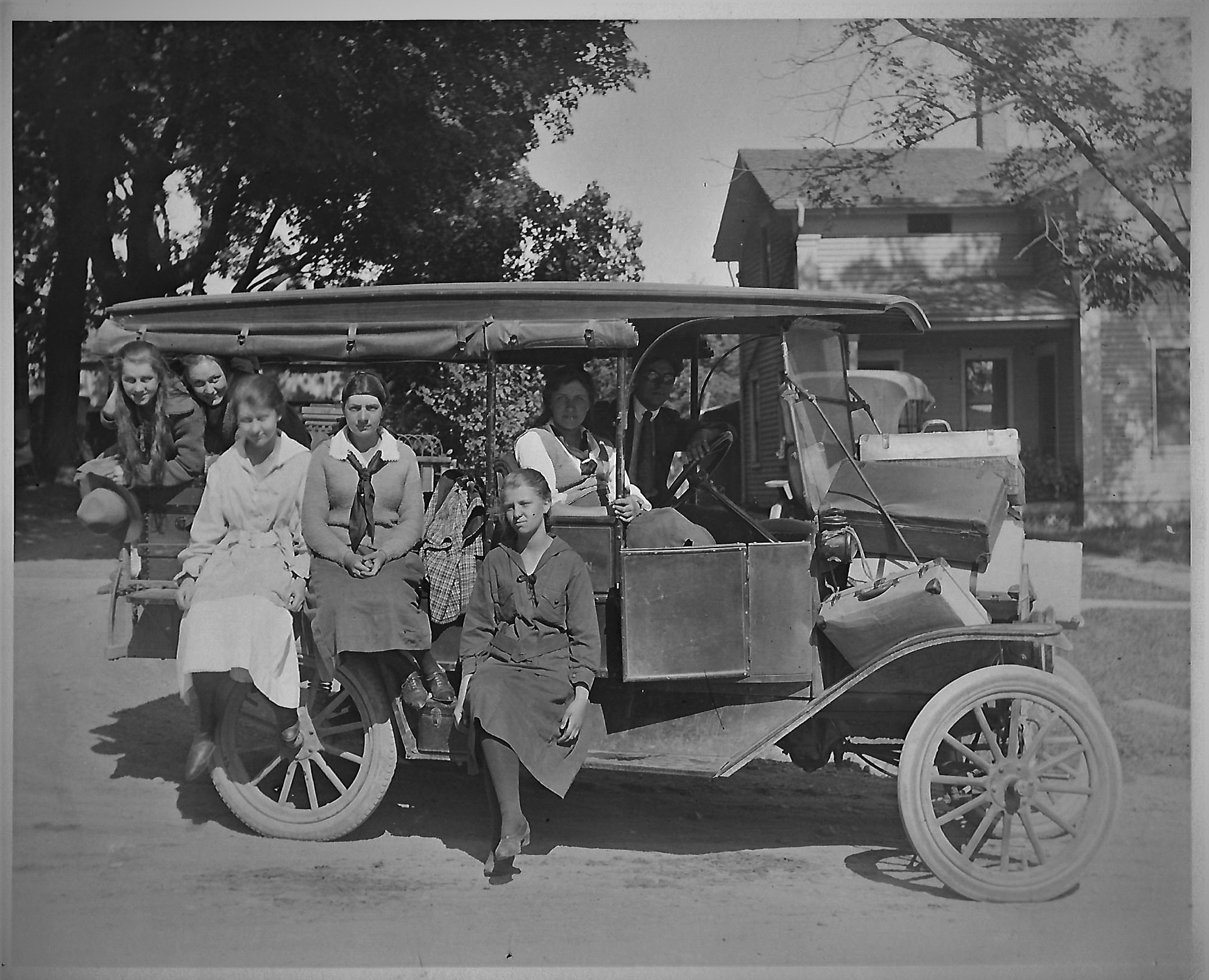
The farmerettes arrive in Sodus for another cherry picking season. Note the luggage strapped on the hood of the car. Photo courtesy of Dick Ransley.
In 1918, The Rural New-Yorker (Volume 77, Page 1039) wrote a wonderful article boasting that the Sodus Fruit Farm was one of the largest (if not the largest) uses of the farmerettes in the state. It gives a detailed account of what their life was like here:
https://books.google.com/books?id=M6ZGAQAAMAAJ&pg=PA1039&lpg=PA1039&dq=Rochester+Women%27s+Land+Army&source=bl&ots=3mqWi7MJqt&sig=ACfU3U04OVk1bjlaWXwtTM7meXFKRW7XKw&hl=en&sa=X&ved=2ahUKEwiGvI6M5LPoAhVCGM0KHfRXCEkQ6AEwFnoECAgQAQ#v=onepage&q=Rochester%20Women’s%20Land%20Army&f=false
1942
In 1939, Thomas MacDill resigns as Sodus Fruit Farm Manager and Mark Buckman takes over. In 1942, the U.S. is in another World War and the Sodus Fruit Farm is once more facing a manpower shortage. Once more the farmerettes rise and do their patriotic chore as noted in the July 23, 1942 edition of the Sodus Record:
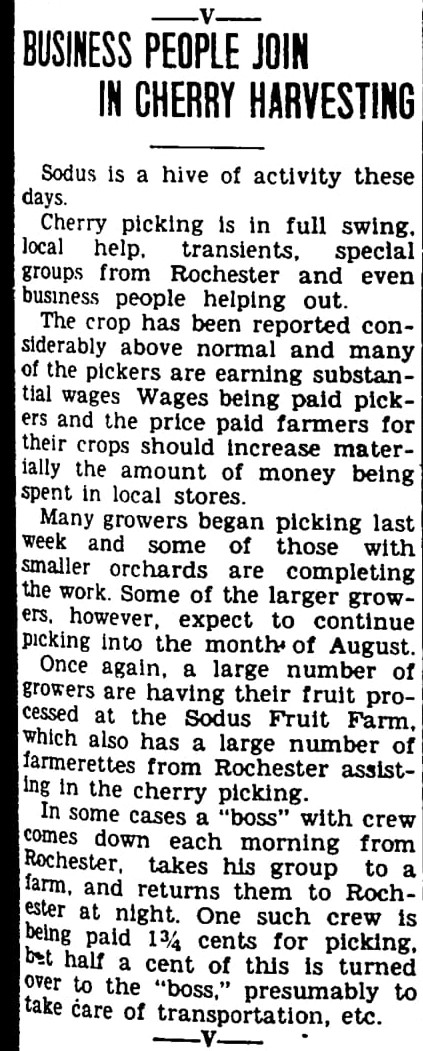
We pick up the story from a March 2, 2020 interview with Sandi Hamilton interviewing Bill Bishop who is the Chairman of the Board for the Sodus Cold Storage. Click the play arrow below to listen to this 3 minute segment:
Audio Player
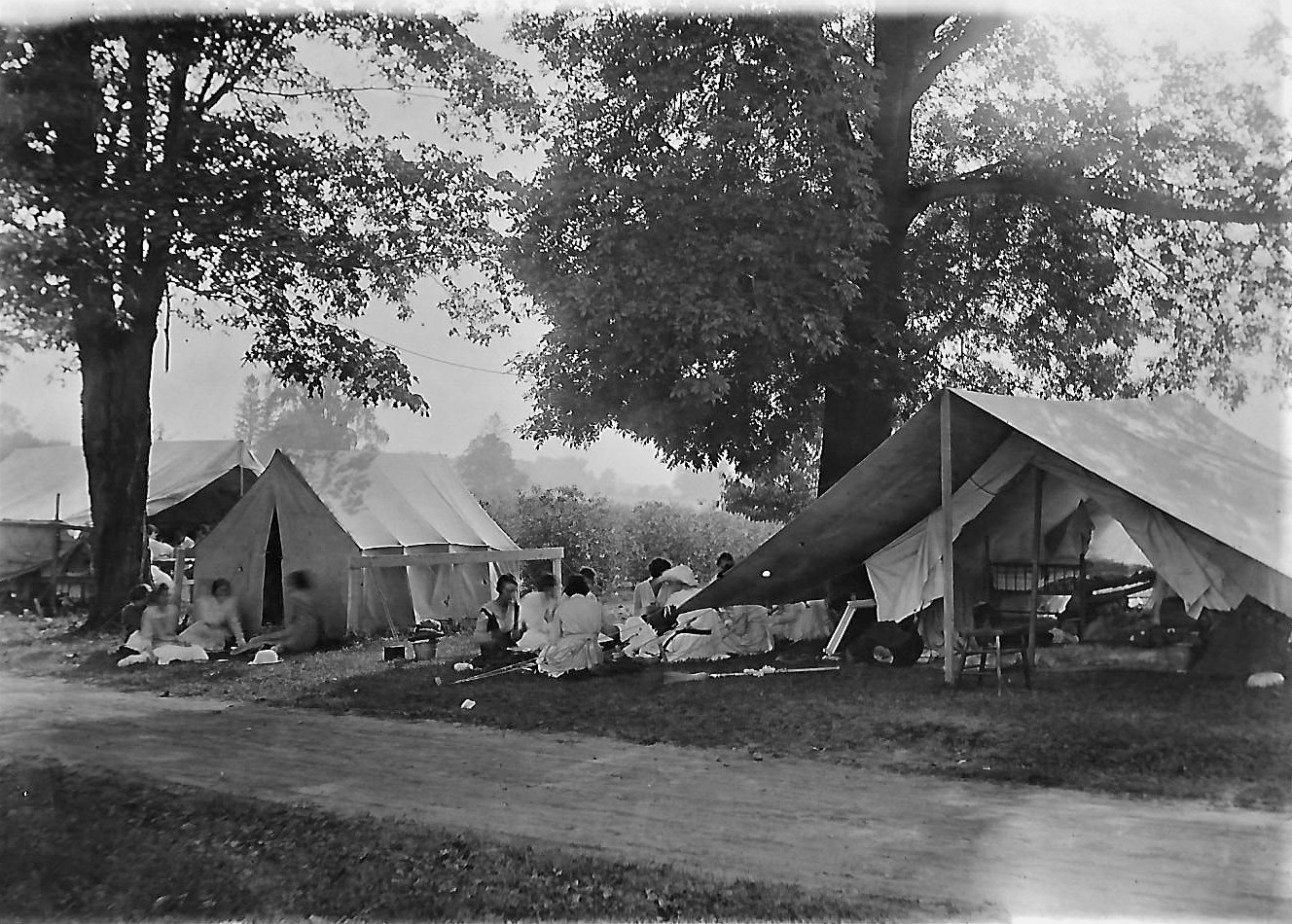
The farmerettes in their tents near the lakeshore on the northern end of the Sodus Fruit Farm. Photo courtesy of Dick Ransley
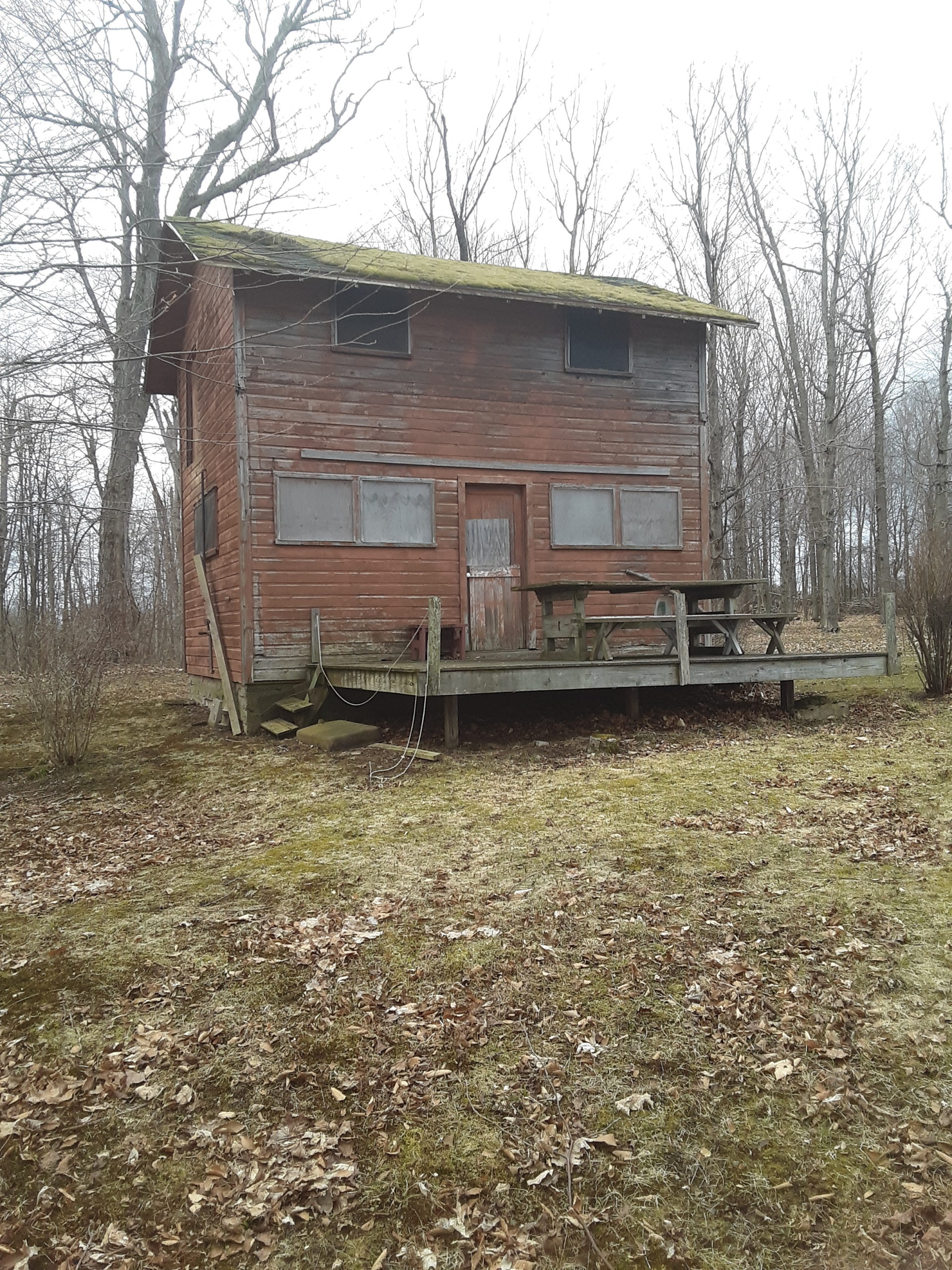
Bill Mckee owns one of the few remaining cabins used by the farmerettes. Photo courtesy of Bill McKee (2020)
Like many patriotic groups, the Woman’s Land Army had their own patriotic songs. One of them was “Back to the Land”. Click the play arrow below to hear it. I have included the lyrics below:
Audio Player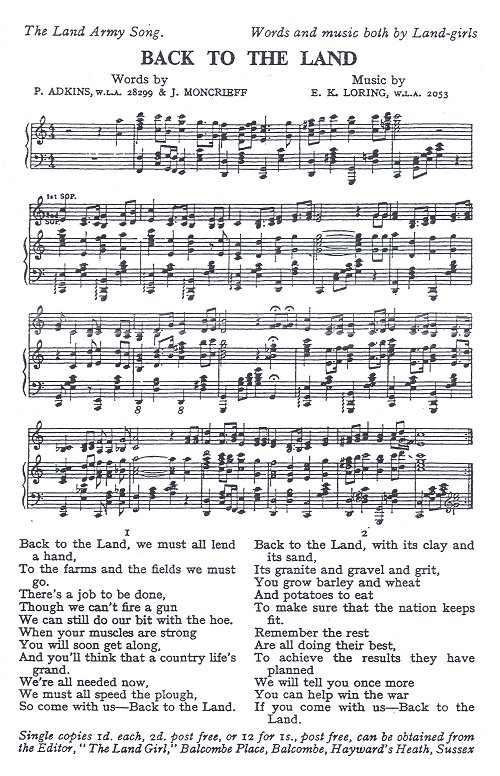
If you would like to learn more about the farmerettes and the Woman’s Land Army, I recommend this excellent 57 minute presentation:
https://www.youtube.com/watch?v=yCqR01DJCD4&t=135s
Thank you farmerettes for your service!
This information is compiled by Bruce Farrington March 2020
Margaret King’s Story (1922 Farmerette)
Synopsis (by Sandi Hamilton):
Karen Cline shared this letter of her grandmother’s post marked July 17,1922. Karen doesn’t know the author of the letter, but must be someone close to Karen’s grandmother as the person signed the letter “Mother L.” Karen’s grandmother must have been one of the farmerettes that year. On the front of the envelope at the bottom, it reads “Stone House” and in the left bottom corner of envelope it reads
“Mr. M Sill.” In the content of the letter it mentions the town dances:
Mrs. L. B. Leonard
112 Bartlett Street
Rochester, N.Y.
Dear Margaret;
Well, Well, I am surprised that you did not come home with your Mother yesterday. I am so glad they were down to see you. Sorry I wasn’t along but I hope to see you next Sunday. I am glad you are enjoying yourself & (………….) too little mischief. I would like to give her a good bear hug. Hope you come home big & fat but don’t over eat or drink too much milk. Now Mother must put in a little word of warning. Don’t you girls go up to one of those street dances, unless one of your advisers, or Foster Mothers are along. It’s not safe for you girls to go home alone. Please tell Louise I said she must not do it. I ate a lot of those sour cherries. They were delicious and so pretty. They must be beautiful on the trees. Harold said he was so far away he could not get over to see you girls.
Tell Louise she had our invitation from Elsa (…………) to come up to Dunkirk. Bye Bye much bunches of love to all Mildred included. Mother L.
Click here to view the actual letter (remember you can use the + and – keys to zoom in and out): Farmerette letter
This information was added by Bruce Farrington December 2020
